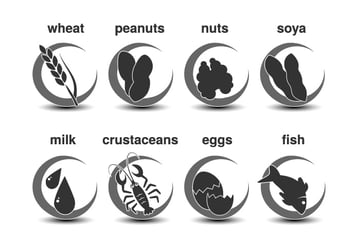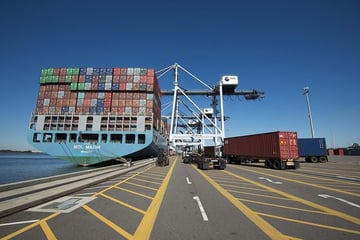The Foreign Supplier Verification Program (FSVP) is an important step forward by the FDA. Its regulations require foreign food suppliers to verify that their products meet the same safety standards as those produced domestically. Even food distributed by US suppliers must undergo the same FDA preventative controls if imported from abroad.
The FSVP is significant for consumer health and safety because it requires all food imported into the US to be properly verified. The program bolsters the existing Food Safety Modernization Act (FSMA), which has regulations that mitigate the risk of foodborne illnesses. With roughly 48 million people in the U.S. becoming sick each year from foodborne diseases, the FSVP must limit poor-quality imports.
Below, we outline the major considerations domestic food suppliers need to know about the FSVP.
Compliance
Under the FSVP, every food importer must have an FSVP plan. Listed below are the main regulations that importers must comply with, but it must be noted that each importer must tailor FSVP plans.
- The food is produced in a manner that provides the same public health protections as outlined in the Federal Food, Drug, and Cosmetic Act.
- The food is not adulterated.
- The food is not misbranded and is properly labeled according to allergens.
Because companies are responsible for complying with food safety regulations, they must create a comprehensive FSVP plan. Here are three components that all importers should consider:
-
Verification: Importers should review a foreign supplier’s compliance history with the FDA. Any red flags or past warning letters should be noted. Onsite audits, sampling, and hazard analyses should also be conducted periodically to ensure that the supplier is always fully compliant.
-
Updating: As suppliers grow and circumstances fluctuate, it’s important to update FSVP plans. There may also be new laws and regulations that were previously unaccounted for. Any discovered hazards should be addressed immediately with corrective actions, but plans must be revised every three years regardless.
-
Recordkeeping: The FDA requires importers to maintain various records, including hazard analyses, risks, and supplier performance. The complete list can be found here. All importers must provide supplier information, including a unique facility identifier (UFI) for all food products entering the country. Importers must use the Data Universal Numbering System (DUNS) number provided by DUN & Bradstreet.
While most food imported into the US is regulated by the FSVP, a few exemptions exist. These include seafood produced in compliance with the FDA’s seafood HACCP requirements, juice produced in compliance with the juice HACCP requirements, food imported for research or evaluation, food imported for personal consumption, alcoholic beverages regulated by the Alcohol and Tobacco Tax and Trade Bureau, food transshipped through the US, food imported for processing and export, returned US food, and meat, poultry, and egg products subject to USDA regulation at the time of importation.
Furthermore, certain “very small importers” may be exempt from regulations. ‘Very small’ is defined as less than $1 million for human food and $2.5 million for animal food in annual sales averaged over three years. The complete details can be found here.
Impacts on Food Suppliers
Food companies must be extra careful when verifying potential hazards from foreign suppliers. All records must be easily accessible in case of an audit by the FDA. Regulators can refuse admission of food products into the US if they are found not to comply. This can mean significant expenses, incomplete contracts, and lost revenue for non-compliant food companies. It’s far easier to remain up to date with the FSVP than to incur the risks associated with noncompliance.
Looking Forward
Food companies need to maintain proper technology for digital recordkeeping. Transparent and streamlined overviews for all documentation are vital in an issue with a foreign supplier. As regulations from the FDA continue to evolve, the strategies and technology used by food companies must continue to develop alongside it.
Tag(s):
Supplier Compliance
Other posts you might be interested in
View All Posts
Supplier Compliance
6 min read
| February 12, 2019
Food Allergen Labeling: Getting it Right Through Supply Chain Transparency
Read More
Supplier Compliance
5 min read
| July 19, 2016
5 Facts to Know About the FDA's Foreign Supplier Verification Program
Read More
Food Industry
7 min read
| March 9, 2023

